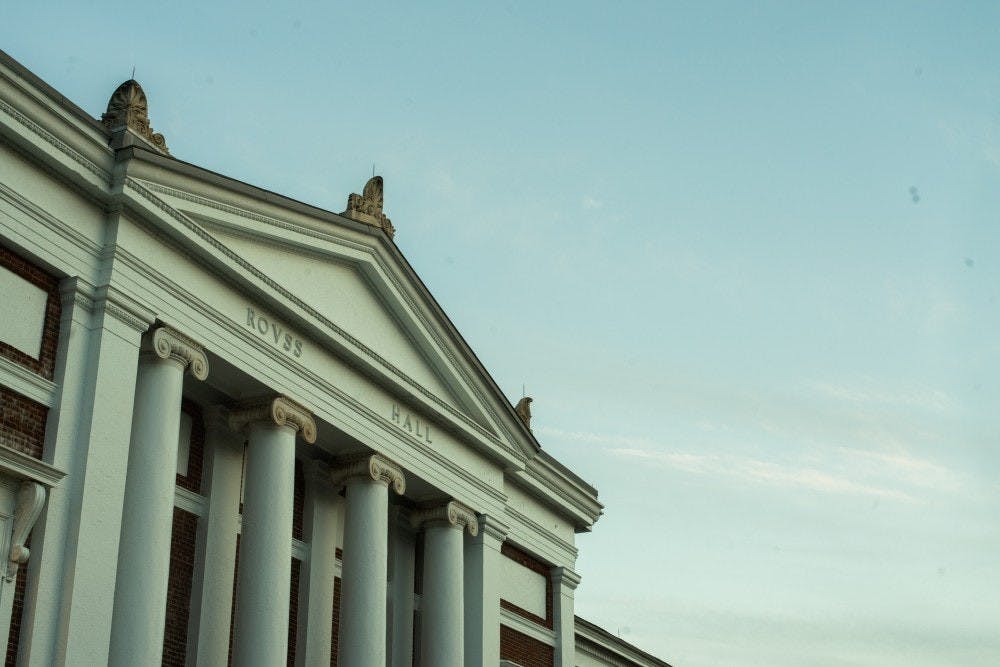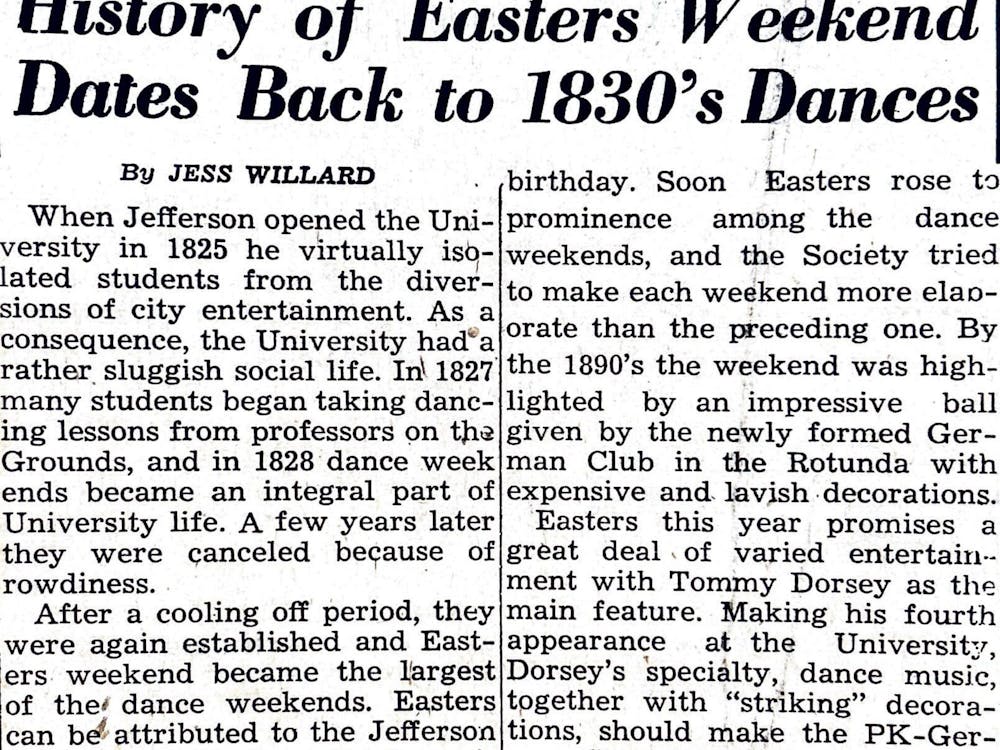Commerce Prof. Jeffery Leopold is facing backlash from Student Council and the Organization of African Students at U.Va. for racially insensitive comments he made during a Zoom session of his Foundations of Commerce class Oct 2.
Leopold, who framed his remarks as a “joke that’s not really funny but interesting,” said that “in Africa, they didn’t know what food meant.” Leopold went on to joke about various other places, including Europe, China, the Middle East, South America and United States.
During the class, a concerned student used Zoom’s chat feature to state that his remarks were insensitive. Leopold reportedly emailed the student and apologized during the next class.
The Organization of African Students released a statement Oct. 29 denouncing Leopold’s “demeaning and insensitive remark” and called on the University to increase bias awareness training for University faculty members and increase yearly diversity standards.
“The Organization of African Students would like to urge the University to call for action and hold professors accountable,” OAS said. “There have been multiple instances where faculty members and staff have made ignorant, and inherently racist statements where the N-word was utilized and minority groups ridiculed and that is unacceptable.”
In a statement to the class, Leopold apologized for his insensitive remarks and expressed a desire to learn from the incident.
“I am deeply sorry for my actions and my words,” Leopold said. “I hope, in turn, that those whom I have hurt can help me continue to broaden my perspective so that I can do a better job, with greater sensitivity and awareness going forward.”
Despite rumors that Prof. Leopold had been told to resign or has been terminated, the McIntire School confirmed to The Cavalier Daily that Leopold continues to work at the School.
A first-year student who was present during Leopold’s class said that they have witnessed similar behavior from other faculty this fall.
“As a [person of color] and first year, it's my first semester and I've been called the n-word and dealt with my other professors adhering to similar behavior displayed by Leopold,” the student, who requested to remain anonymous, said in an email to The Cavalier Daily. “This had made the semester harder for not only me but other students of color around the University.”
The student also suggested ways the University could become more inclusive, such as introducing a new honor code or revamping the current one to include banning racism and discrimination, as well as establishing mandatory classes on inclusivity for both students and faculty.
“If U.Va. took these issues as seriously as they do cheating, we would be in a much better place and have a very inclusive student body,” the student said.
Following the incident, Student Council also introduced and passed legislation that denounces Leopold’s comments and proposes several anti-racist measures.
The legislation, which was introduced at Student Council’s Nov. 2 meeting, calls on the University to improve the standards for yearly diversity and bias awareness training for teachers and teaching assistance. It recommends the implementation of a strike system, which would ensure that “there are consequences and accountability” for a professor’s racist comments or actions.
The resolution also proposes more transparency around U.Va.’s Just Report It tool, which is an online system used by the University to handle reports of sexual and gender-based harrasment and violence, bias and discrimination, hazing and other acts of violence.
Rep. Zyahna Bryant, a second-year College student and community activist, introduced the legislation during the Student Council meeting. Bryant said that the legislation is necessary to ensure that this type of behavior does not continue among faculty.
“There is no fence to straddle,” Bryant said. “Either you find yourself on the side of being complicit, or [you’re] against racism and white supremacy.”
A heated debate ensued following the proposal of the resolution, prompted by statements made by first-year Rep. Nickolaus Cabrera in opposition of the legislation.
Cabrera, a first-year College student, said that he has found some conclusions drawn within the resolution to be “poor and obscure in nature.” Cabrera said that he would prefer “strong evidence” of Leopold’s statements and questioned whether the professor’s joke was racist.
In response to Cabrera’s statements, Rep. Roneil Jackson, cosponsor of the resolution and a student in the School of Continuing and Professional Studies, urged members of Student Council to support the resolution.
“It’s very important that we support and stand up for each other,” Jackson said. “I find it really strange that there’s such an intense statement in opposition to this, and I would find it strange for anyone to vote against such a bill.”
Ryan Alcorn, a third-year College student and president of Third Year Council, agreed with Jackson and added that in addition to a video of Leopold’s statements during class, there are countless other personal accounts of stories similar to this from minority students across the University, making the resolution necessary.
“We’re lucky that we have a video this time, but we need to recognize that this is more of a systemic issue,” Alcorn said.
Rep. Neha Rana, a second-year College student, echoed the comments of earlier speakers and described a personal encounter with Leopold last year, during which the professor insinuated that she would be better off pursuing STEM courses as an Asian-American student.
“I personally took his class my first semester of college, and I was very dissuaded from even thinking about doing [Commerce],” Rana said. “Obviously this is very different in nature — this does not even begin to compare to what we are talking about now — but just because I didn’t get that on video doesn’t mean it doesn’t hold true.”
Rep. Jason Evans, a Religious Studies PhD student, addressed Cabrera more directly and emphasized that it is important to hold all professors — and especially tenured professors — accountable for what they say.
“When Black folks say some s—t is racist, believe them the first time,” Evans said.
Evans said that he was upset that Cabrera used language that was “simply gaslighting and disrespectful.”
“Anti-Blackness is global, period,” Evans said. “I would suggest that you do your work, maybe take a couple of classes, to understand the pervasive nature of structural and systemic racism and anti-Blackness.”
Cabrera responded that he was concerned about protecting the integrity of professors within the proposed strike system.
In a statement released Friday, Student Council’s Executive Board addressed selectively-edited videos of the meeting that were posted by the Young America's Foundation on Twitter, some of which have garnered over 22,000 views. The statement says that posts on YAF’s social media have historically endangered University students, and the executive board is working with University officials to ensure the physical health and safety of the representatives targeted in the posts. YAF is a conservative youth organization that works to advance traditional values and individual freedoms.
Rachel Zentmayer contributed reporting to this article.







